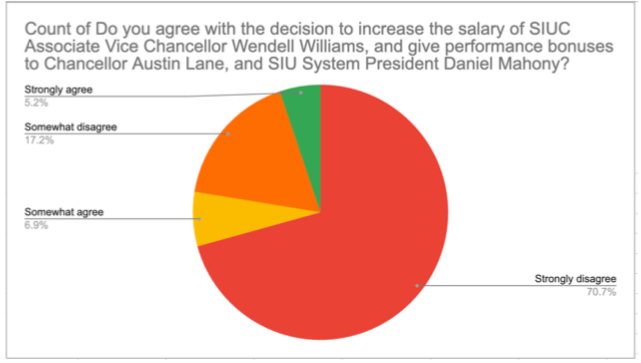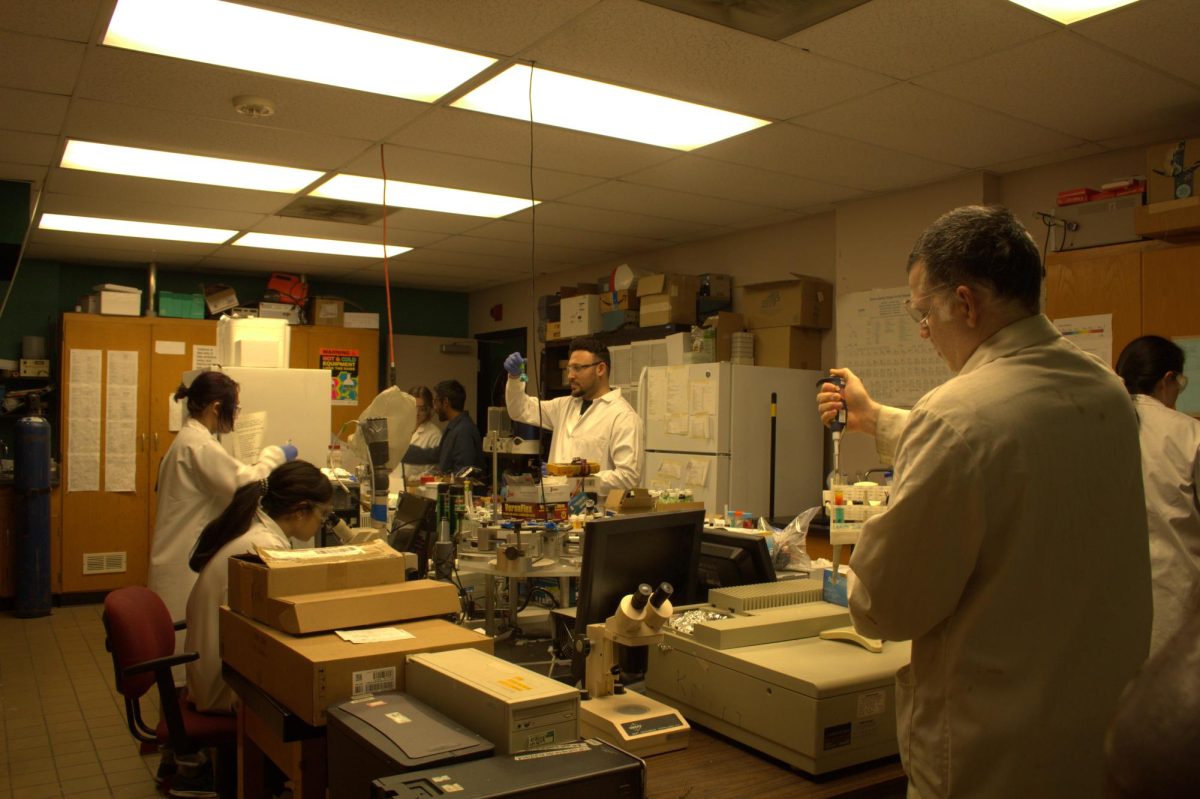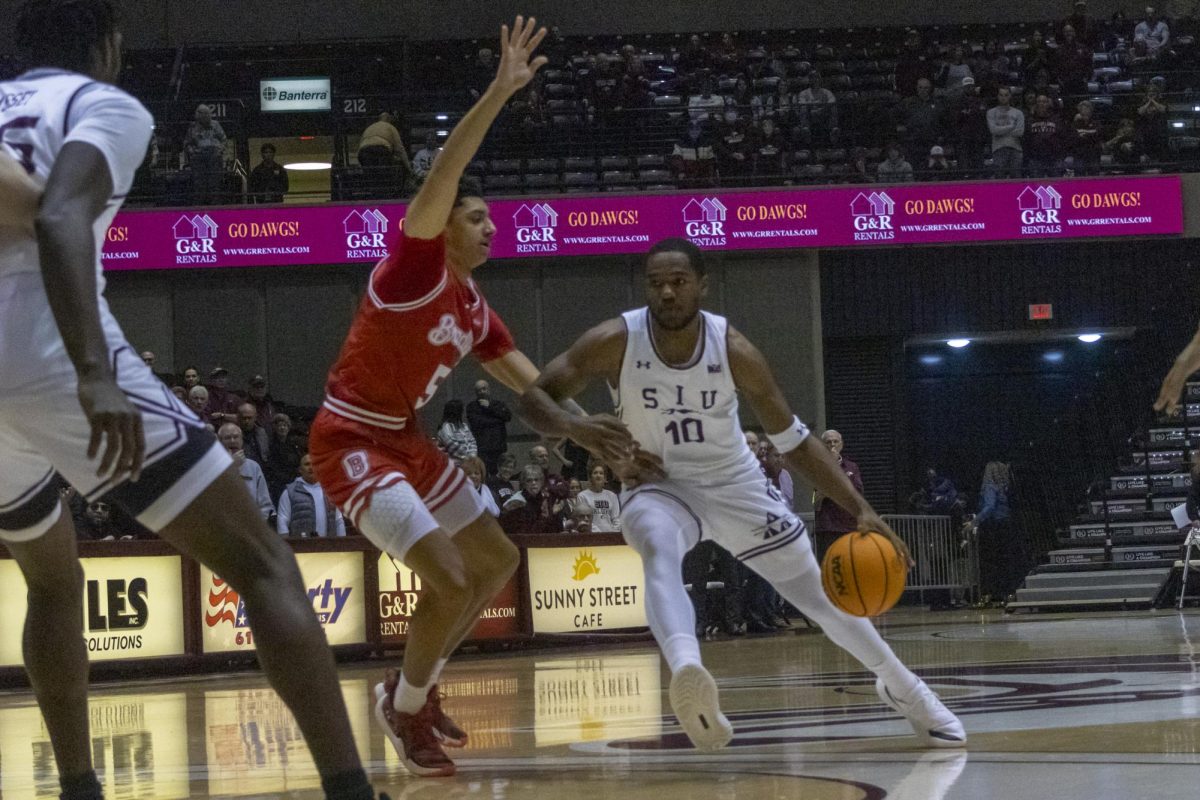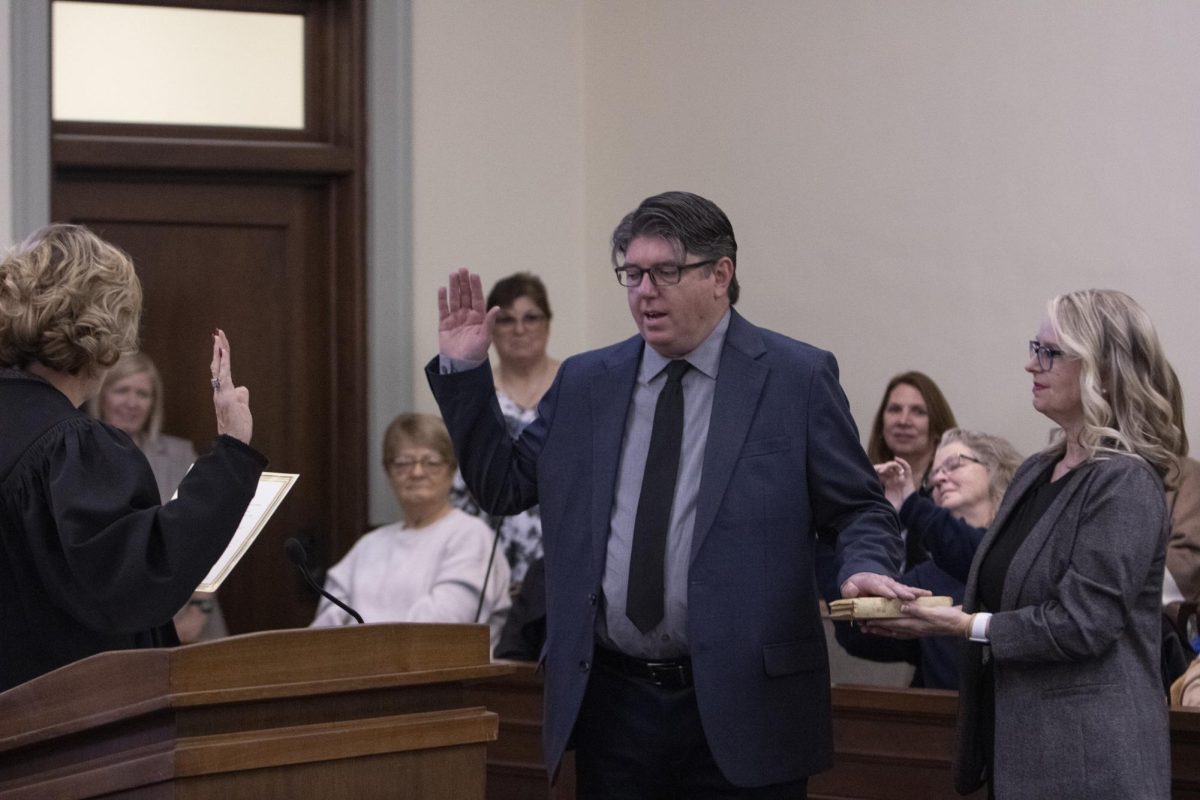Recent salary increases and performance bonuses awarded to key SIU administrators have generated mixed reactions among students and alumni.
On July 11, members of the SIU Board of Trustees voted unanimously to increase the salary of Associate Vice Chancellor Wendell Williams, while Chancellor Austin Lane and System President Daniel Mahony received bonuses.
Advertisement
Williams was promoted to Vice Chancellor for Enrollment Management, a title change that came with a salary increase. Previously earning $165,000, his salary was raised to $185,203, a change Lane recommended due to Williams’ responsibilities in managing enrollment and strategic planning.
SIU Board of Directors Chairman, Phil Gilbert, said, “Williams is a strong leader for SIU. His strategic work and leadership have led to impressive improvements in student enrollment at SIU Carbondale. SIUC experienced the largest increase in enrollment in over 20 years last year and expect to have an increase this year as well. This is all happening at a time when most other universities are struggling with enrollment…Promoting Williams to a vice chancellor role increases his scope of work and gives him more of an opportunity to make a positive impact.”
Meanwhile, Lane and Mahony received bonuses as incentives for their work. The incentive compensation is included in both administrators’ contracts with the university. While the condition allows for annual performance bonuses, it does not mandate that they be awarded.
Advertisement*
Lane and Mahony were also offered the option to comment on student and alumni opinion, but they have not yet responded to the matter. Gilbert speaks on behalf of them and the Board of Trustees.
“These bonuses are outlined in their employment contracts and are tied to meeting strategic goals agreed to by the board,” Gilbert said.
Gilbert explained that the board evaluates executive leader performance annually to determine if their accomplishments in the past year align with the system’s goals.
“If they don’t meet the performance goals, they don’t receive a bonus,” he said. “The bonuses for these and other employees have been critical in improving retention and that has been correlated with improved performance,” Gilbert said.
Lane was awarded the full $65,000 bonus allowed in his contract based on his performance during the past year, and Mahony was awarded the full $115,000 bonus.
“The SIU Board of Trustees approved performance bonuses for Chancellor Lane and President Mahony based on their annual performance evaluations, which were both strong,” Gilbert said. “Most notably on their accomplishments – SIU Carbondale’s strong enrollment increases and record setting fundraising by the foundations in the last year. It’s important to point out that these bonuses are not funded with taxpayer dollars; the bonuses are funded by the SIU Foundation.”
Fern Lilley, an SIU student majoring in history and philosophy, said he “was appalled” when he first heard about the leadership compensation. Lilley’s concerns extended to broader budget priorities as well as how these decisions seem disconnected from student needs and struggles.
Lilley said, “I’ve been at SIUC for about three years and have seen very little change. The History Fair almost didn’t happen last year, and it’s little things like that which actually get more students – not bonuses for those already making six figures.”
He also emphasized how ongoing budget constraints have negatively impacted academic programs, leading to reduced resources and missed opportunities for student enrichment.
“Enrollment may be up, but departments are suffering. COLA (College of Liberal Arts) just received a merge of departments in advisement, doubling the workload of some of the advisors. The History department is hurting for money…This is not good performance, it’s good money making,” Lilley said.
The Daily Egyptian surveyed 365 anonymous people who self-identified themselves as students, faculty, alumni and community members, finding that many share similar sentiments. Among the 58 students surveyed, 70.9% strongly disagreed with the decision to increase Williams’ salary and award performance bonuses to Lane and Mahony. An additional 17.2% somewhat disagreed. Meanwhile, only 12.1% of students expressed at least some level of agreement with the decision.
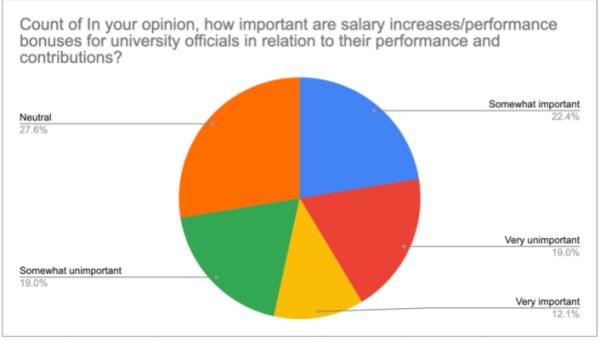
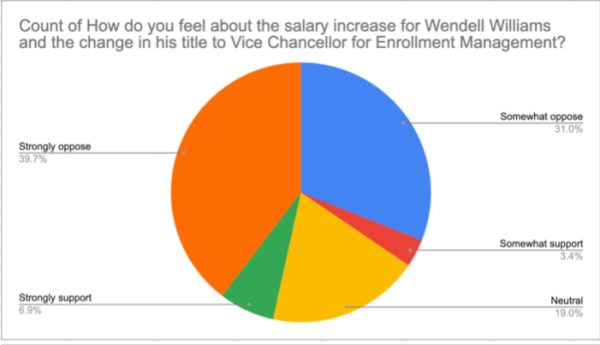
For students like Lilley, financial aid and department funding are more pressing needs.
“I’m a stay-at-home parent receiving financial aid, and I barely afford this education,” he said. “More funding directly to departments would help teachers assist students in saving money.”
He added that greater financial support for departments could alleviate some of the burdens faced by students, and a need for more direct investment in educational resources rather than administrative bonuses.
Austin Peppers, a prospective SIU student, said, “It seems more and more money is spent lining the pockets of administrators rather than helping prospective students afford tuition, or even lowering the cost of tuition.”
Peppers said that it is very discouraging to see money being given to self-serving people rather than put into academics.
“As a prospective student, it’s beyond concerning that administration is more focused on getting more for themselves, rather than seeing how the school could be made more affordable and how more scholarship opportunities could be given,” Peppers said. “I am struggling to find an affordable, quality university to find, yet these folks can keep being given more than they need.”
Lilley said, “The most important factor here is student, faculty and staff voices in order to create a more ethical environment. These bonuses have shown me that the administration doesn’t care about my education. If I was a student who had the ability to learn somewhere else, I would.”
In the survey, students were asked, “How do you perceive the impact of these salary increases and performance bonuses on the overall morale and motivation of faculty members?” The results were as follows:
- 43.9% of students reported that the salary increases and performance bonuses had a very negative impact.
- 36.8% of students reported that the salary increases and performance bonuses had a somewhat negative impact.
- 7% of students reported the salary increases and performance bonuses had no impact.
- 7% of students reported the salary increases and performance bonuses had a somewhat positive impact.
- 5.3% of students reported the salary increases and performance bonuses had a very positive impact.
Lilley also questioned the fairness and justification of the bonuses. Earlier this year, Chancellor Lane was a finalist for a leadership position at the University of New Mexico, raising concerns among some about his long-term commitment to SIU.
“In the long run, extravagant salaries and needless bonuses funnel money away from the college and are completely unethical and wasteful,” Lilley said. “Bonuses to lower workers would be plausible. Those who are already making enough money and even tried to leave to work somewhere else, shouldn’t be bought off. If the Chancellor doesn’t want to work at SIU then why would we give them extra money?”
Riley Hemken, a senior majoring in exercise training, offered a different perspective.
She said, “I heard about the salary increases in July, and I wasn’t surprised, given Chancellor Lane’s recent opportunity to leave for New Mexico State University. It feels appropriate from both a competitive salary standpoint and as recognition for SIU’s enrollment increase over the last four years.”
Regarding leadership performance, Hemken added, “From my perspective as a student, there are some areas that will always seem to be lacking and that is what mid-major schools will always face. While it’s easy as a student to complain about parking, dining hall food or staff, Chancellor Lane and his fellow leaders have done very well with what they have.”
She said that leadership may be working behind the scenes on issues that students do not always see.
“I think a lot of students and staff underestimate how many things our leadership may be trying to improve, and they are unable to meet the request of every student and their qualms,” Hemken said.
Hemken also said that resources should be more balanced.
“Yes, some areas desperately need attention, but funding often follows the profitability of each college,” she said.
When asked about the impact of leadership compensation on the student experience, Hemken said, “Money equals motivation. I believe that these raises and bonuses will have a catalytic effect on improvements for our school or future classes. It may be a while before the effects trickle down to each college and classroom but nonetheless, they are coming.”
She said the hopes are that, if leadership is more incentivized, they will continue to put forth their best intentions and efforts to make the university better one step at a time.
“I think the future of SIU will be impacted as we have already seen SIU grow. There are more installments on campus for students such as the updates to the REC, student housing changes and much more. Again, current students may not see the changes due to how long they may take but things are improving,” Hemken said.
Alumni responses provide additional context on how these decisions are perceived.
Survey results reveal a mixed reaction among the 54 surveyed alumni. Of alumni who responded, 42.6% strongly disagree with the board’s decision to award the raise and bonuses to leadership, and 16.7% somewhat disagree, expressing concern about the allocation of funds. Meanwhile, 24.1% strongly agree, and 11.1% somewhat agree, sharing beliefs that the increases are justified by the progress and stability achieved under the current leadership. 5.6% of surveyed alumni took a neutral stance on the question.
Sam Donets, an SIU alumni who earned a bachelor’s degree in Radio TV in 2012 and a master’s degree in Sport Administration in 2014, expressed support for the board’s decision, noting that the university seems to be stabilizing after a period of uncertainty.
“If it means a higher salary for them to keep them happy and at SIU for an extended period of time, pay them. It’s worth the investment,” Donets said.
He commended the Board of Trustees for investing in administrators who have demonstrated progress and success.
“For the first time since Interim Chancellor [Samuel] Goldman, I’ve felt confident that the school is heading in the right direction,” Donets said.
Goldman served as SIU Interim Chancellor from 2008 to 2010.
Donets also highlighted Lane’s efforts to stabilize the institution and improve its reputation.
“Chancellor Lane has made it a priority to make sure the school is stable and that the student body is actually proud of attending their university…SIU finally has leadership in place that’s worth the money, proven by the fact that other schools are trying to poach our leaders,” he said.
However, Donets also suggested areas for further improvement. He called for more attention to faculty salaries, pointing out that some faculty compensation does not seem to align with program performance.
He said, “During my time at SIU, I was confused as to why certain faculty members were making a certain salary, but yet the program they were a part of was still rated as below average or mediocre compared to our MVC peers.”
Additionally, Donets advocated for increased investment in the university’s athletics programs.
“Overall, the school needs to invest more in its athletics programs. The ROI of playing in the NCAA tournament is proven to be the biggest marketing tool in the nation for prospective students. Get the Dawgs back to the tourney and more prospective students will not only consider SIU, but enroll,” Donets said.
Responding to the feedback from the Daily Egyptian survey, Gilbert said that SIU competes for employees on a national level, especially for their top leaders. SIU’s human resources team establishes a range for all university positions with the goal of being competitive in the market.
In the survey, students and alumni were asked, “In your opinion, how important are salary increases/performance bonuses for university officials in relation to their performance and contributions?” The results were as follow:
STUDENTS:
- 22.4% reported they are somewhat important
- 12.1% reported they are very important
- 19.0% reported they are somewhat unimportant
- 19.0% reported they are very unimportant
- 27.6% reported neutral
ALUMNI:
- 25.9% reported they are somewhat important
- 35.2% reported they are was very important
- 7.4% reported they are somewhat unimportant
- 11.1% reported they are very unimportant
- 20.4% reported neutral
“In [Williams] becoming a vice chancellor, the scope of his area expanded since his appointment in 2020. The vice chancellor title more appropriately characterizes his level of work and is in line with other universities with vice chancellors over strategic enrollment management areas,” Gilbert said.
He reported that Williams’ salary was increased to appropriately reflect the duties and title of a vice chancellor of enrollment position. However, Gilbert said his salary is still below the national median in a role like this by over 20%.
According to Gilbert, when it comes to the budget, SIU believes in prioritizing fair, competitive wages for all employees based on the jobs they are doing to move the system forward.
“We need to be competitive in what we pay our leaders, faculty and staff in order to retain and attract top talent,” he said. “However, as is the case with Mr. Williams, our top leaders are generally behind the median of those in similar positions at other universities because we are balancing competitive compensation with the university’s financial health.”
The proposal to change Williams’ title and salary, as well as Mahony and Lane’s evaluation letter, can be found in the Board of Trustees agenda from July 11.
Gilbert said, “The board works to fairly evaluate our administrators on a regular basis; we do not evaluate the performance bonuses of our leaders through an anonymous survey. These leaders are under contract, but they are required to achieve performance goals that are set each year. If they aren’t hitting the goals, they’re not entitled to this incentive pay.
“SIU is committed to strong ethical standards,” he said. “We always welcome public input, though the board is committed to making decisions that are in the best interest of the university system as a whole.”
Advertisement



